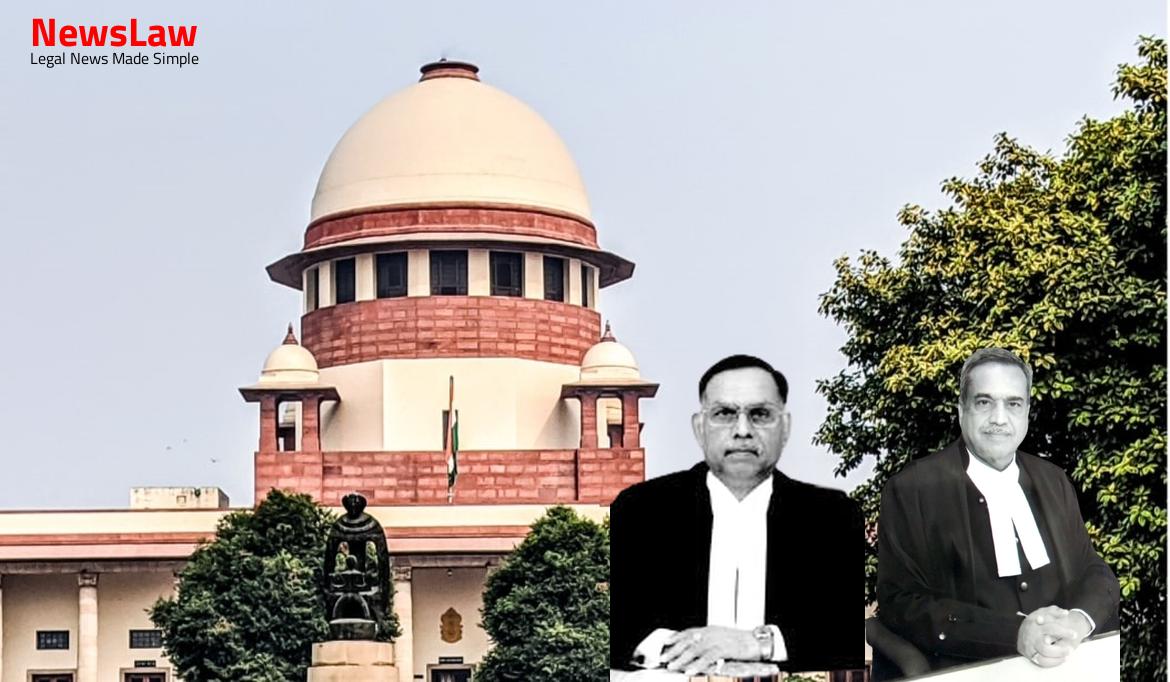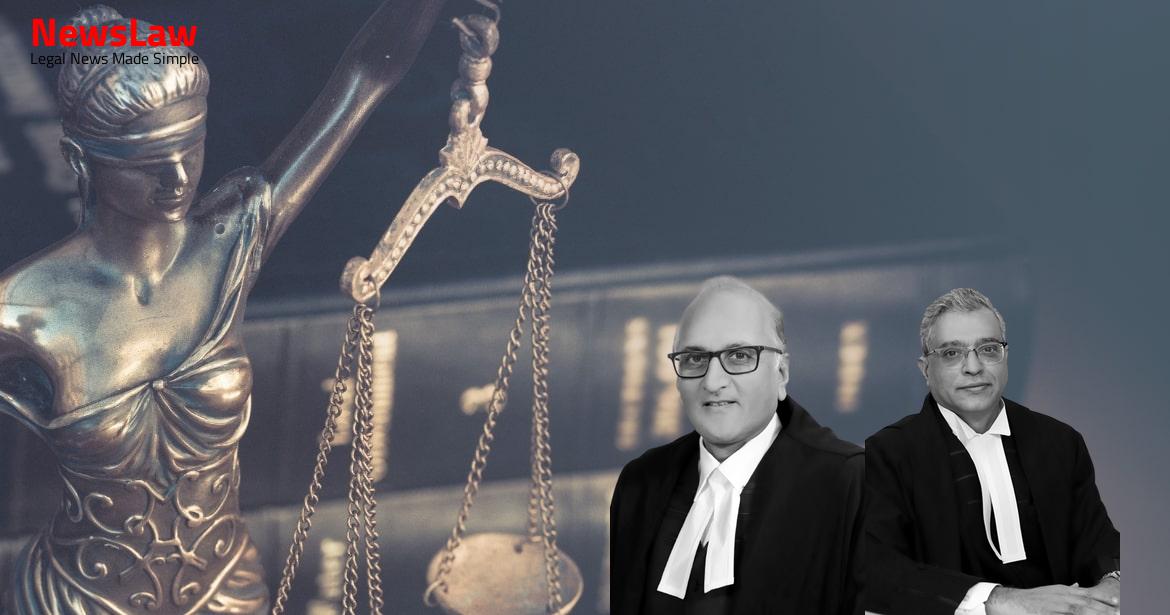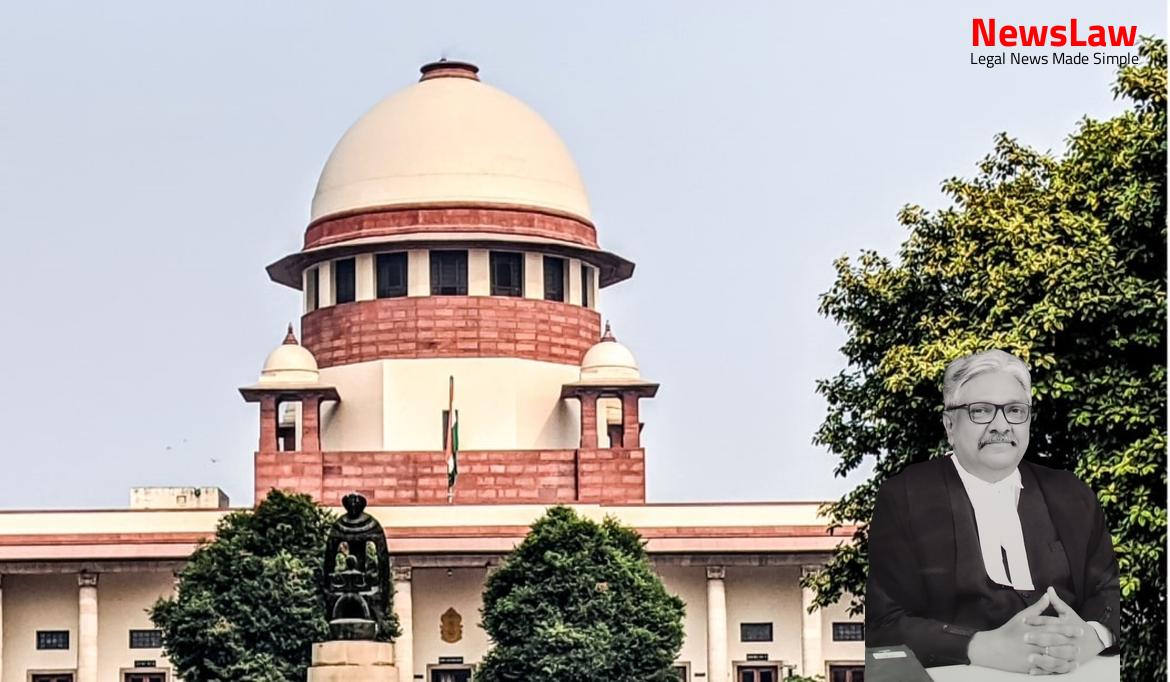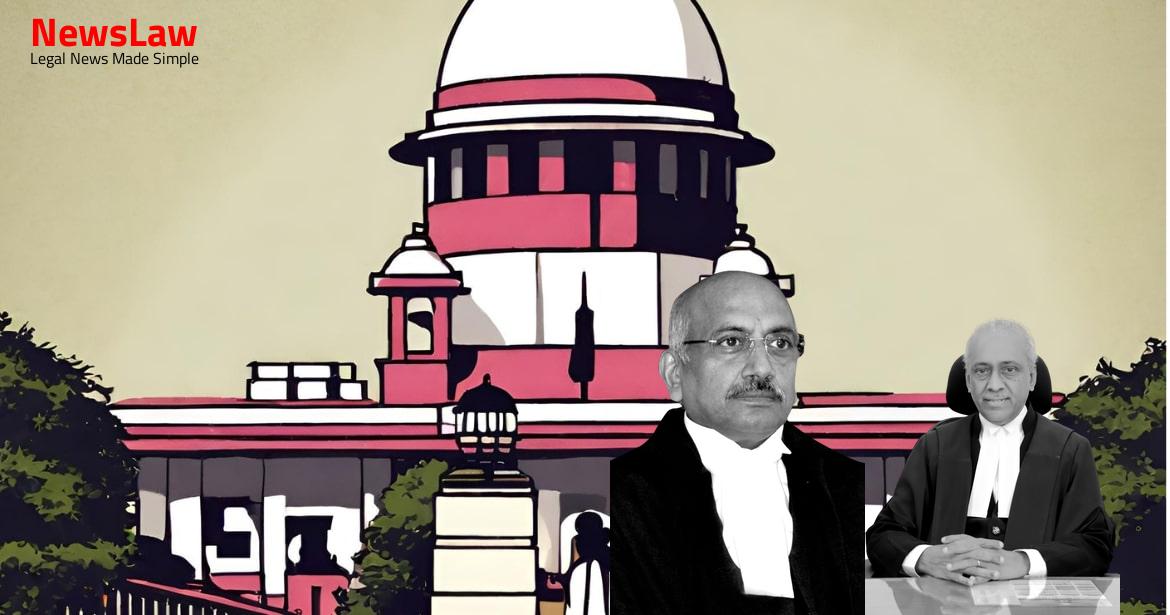Explore the nuanced legal analysis surrounding court jurisdiction in review proceedings. This case summary delves into the limitations and scope of review powers, emphasizing the need for adherence to statutory provisions. Understanding the court’s approach to correcting errors and the grounds for seeking review provides valuable insights into the legal framework governing such proceedings.
Facts
- Shri Ram Sahu filed Civil Suit No.04A of 2005 against the respondents for declaring a Sale Deed null and void.
- The Sale Deed dated 25.03.1995 was executed by original defendant no.3 in favor of original defendant nos. 1 & 2 regarding House No.28/955.
- Shri Dilip Kumar Sahu got possession from tenants through compromises on 30.01.1995.
- The petitioner obtained possession of another portion from tenant Parvesh Singh Jadon through a judgment and decree dated 18.10.2014.
- Relief sought in the case was for the Sale Deed to be declared null and void, and for permanent injunction against defendants 1 & 2.
- The High Court dismissed the application but granted permission to file a separate suit for relief.
- The Trial Court dismissed the suit, leading to the appeal by the original plaintiff.
- Various applications were filed during the course of the appeal, including for amendments and possession issues.
- The High Court made observations regarding possession but later allowed a review application to delete those observations.
- The appellants, feeling aggrieved, have filed the present appeal against the High Court’s order.
- The submissions made by the Senior Advocate on behalf of the appellants include challenges to the High Court’s jurisdiction and actions.
Also Read: Transfer of Writ Petitions for Chartered Accountants’ Tax Audit Guidelines
Issue
- Disputed House No.28/95 in Sube Ki Payga, Jiwajiganj, Lashkar, Gwalior was allegedly purchased from the income of the Joint Hindu Family of Ghasilal and Mangaliya.
- Question on whether Chhimmabai, the wife of Ghasilal, executed a Will for the aforesaid house in favor of the Plaintiff on 19.10.1993 is raised.
- Query regarding the adoption of Defendant No.3 by Ghasilal on 28.01.1985, which was registered by Chhimmabai on 13.05.1992, is brought into focus.
Also Read: Analyzing Interference with Acquittal in Legal Conviction Case
Arguments
- 1.1
- 3.1
- 3.1
- 3.2
- 3.3
- 3.3
- The respondents, during the lifetime of Shri Ghisa Lal Sahu, were in possession of the property.
- The issue of adoption of Shri Dilip Kumar Sahu was litigated in Suit No.4A of 2001, challenging the adoption deed dated 13.05.1992.
- The appellants filed an application in the High Court seeking relief of permanent injunction against dispossessing them, but it was dismissed as the respondents were not threatening dispossess during the suit’s pendency.
- No specific issue regarding possession was framed by the Trial Court, and the suit was ultimately dismissed, leading to the appeal also being dismissed.
- The observations made by the High Court regarding possession in para 20 were deleted, as there was no reason or occasion for making such observations.
- Subsequently, a case was directed to be registered against the respondents under IPC sections by the learned Magistrate.
- A suit filed by the defendants-respondents in 2017 was dismissed by the High Court on grounds of limitation, with the plaint being rejected under Order 7 Rule 11 CPC.
- The original plaintiff sought cancellation of a sale deed dated 25.03.1995 and a permanent injunction against transferring the property, but no injunction from dispossession was requested.
- Smt. Chhimmabai and the adopted son Dilip Kumar Sahu continued to be in possession of the property after Shri Ghisa Lal Sahu.
Also Read: Judicial Review on Sentence and Compensation in Criminal Case
Analysis
- Section 114 CPC allows for review when a person is aggrieved by a decree or order and no appeal is preferred.
- Review power under Section 114 CPC does not have specific conditions or prohibitions, allowing the court to review its decision.
- High Court overstepped its jurisdiction in deleting para 20 regarding possession during the review.
- Review should not entail rehearing the matter; errors should not be corrected under the guise of review.
- Review can only be based on specific grounds mentioned in Order 47 Rule 1 CPC.
- Appreciation of evidence should be the basis for review, not the mere discovery of new evidence.
- The tribunal must confine its review to material available at the time of the initial decision.
- The issue of possession was raised in pleadings, allowing for consideration despite no specific issue framed.
- High Court erred in deleting para 20 without valid grounds under Order 47 Rule 1 CPC.
- Inherent power cannot be invoked for reviewing orders, only specific grounds under Order 47 Rule 1 apply.
- The power of review is limited in scope and cannot be used as an ‘appeal in disguise’.
- A review petition can only be allowed for correcting a mistake, not to substitute a view.
- An error apparent on the face of the record must be self-evident and not require elaborate reasoning to detect.
- The power of review is not inherent but is derived from statutory provisions.
- The grounds for seeking review are specifically enumerated in Order 47 Rule 1 CPC.
- Review proceedings must strictly adhere to the ambit of Order 47 Rule 1 CPC.
- The power of review is not equivalent to appellate powers and cannot be used to correct all errors.
- Review can be sought for reasons analogously similar to those specified in the rule.
- Detection of new and important evidence or a mistake on the face of the record are valid grounds for a review.
- The power of review cannot be used to question the correctness of a decision on merits.
- The High Court committed a grave error in allowing the review application and deleting the observations made in para 20 of its previous order
- The impugned order is unsustainable and deserves to be quashed and set aside
- The appeal is allowed and the impugned order dated 14.07.2017 is quashed and set aside
- Para 20 of the judgment and order dated 10.12.2013 is restored
Decision
- High Court dismissed the application submitted belatedly, not on merits.
- Plaintiffs sent a legal notice to defendants demanding to vacate the disputed place, but they did not comply.
- After three years from the disposal of the First Appeal, defendants filed a separate suit for receiving possession of the disputed house where their possession was admitted.
Case Title: SHRI RAM SAHU (DEAD) THROUGH LRS Vs. VINOD KUMAR RAWAT (2020 INSC 627)
Case Number: C.A. No.-003601-003601 / 2020



